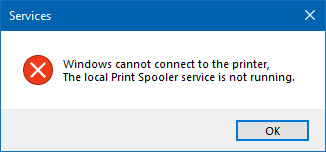
The Print Spooler service is an essential component to get your printer working properly. The “local print spooler service is not running” error could indicate a faulty configuration, or it could mean something is wrong with the computer drivers. While there may be many reasons behind this error, it’s usually not that hard to fix.
Try these fixes:
You might not need to try them all. Simply work your way down until you find the one that does the trick.
- Reconfigure the Print Spooler service
- Run the troubleshooter
- Reinstall your printer driver
- Install all Windows updates
- Check for corrupted system files
Fix 1: Reconfigure the printer service
First you can start by troubleshooting settings of services. By default the Print Spooler service runs automatically, but you should check to make sure everything is configured properly.
- On your keyboard, press Win+R (the Windows logo key and the R key) to open the Run box. Type or paste services.msc and click OK.
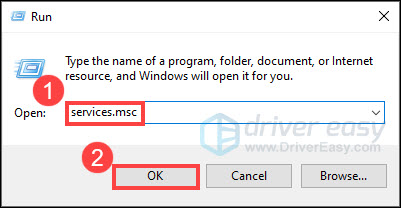
- Right click Print Spooler and select Properties.
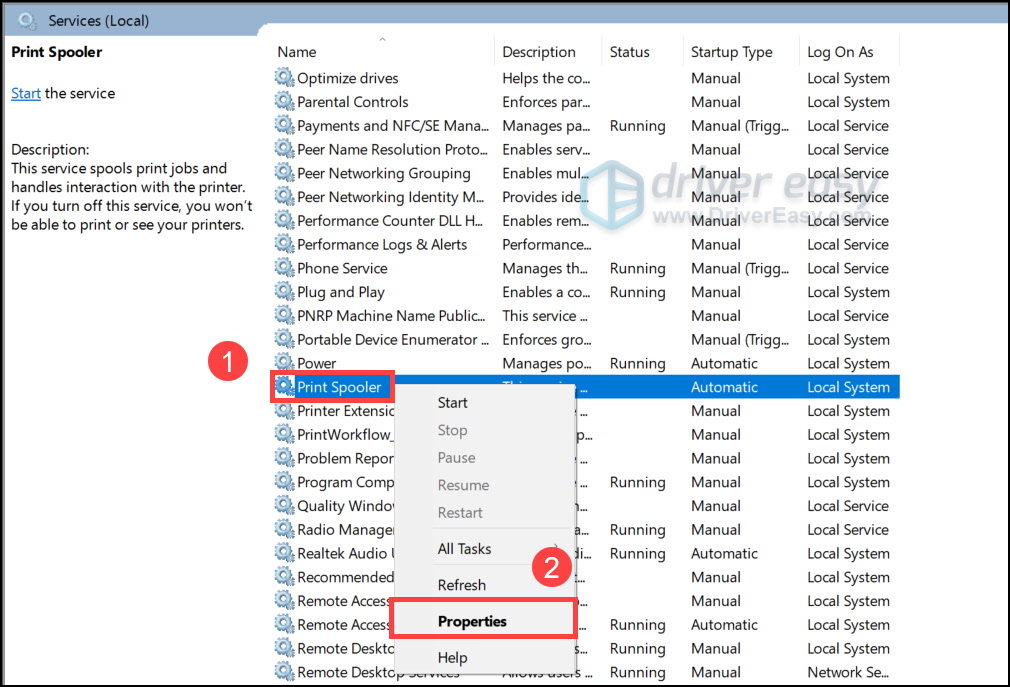
- Make sure Startup type is set to Automatic. You can also try to manually start the service by clicking Start.
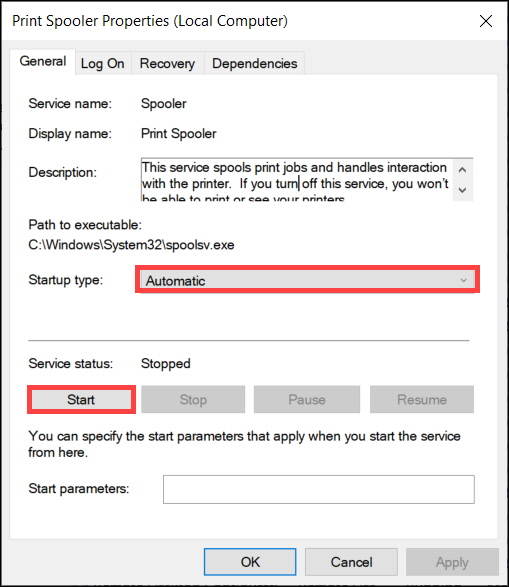
- Navigate to the Recovery tab. Make sure First failure and Second failure are set to Restart the Service, Reset fail count after is set to 1 days, Restart service after 1 minutes. Once completed, click OK to save the changes.
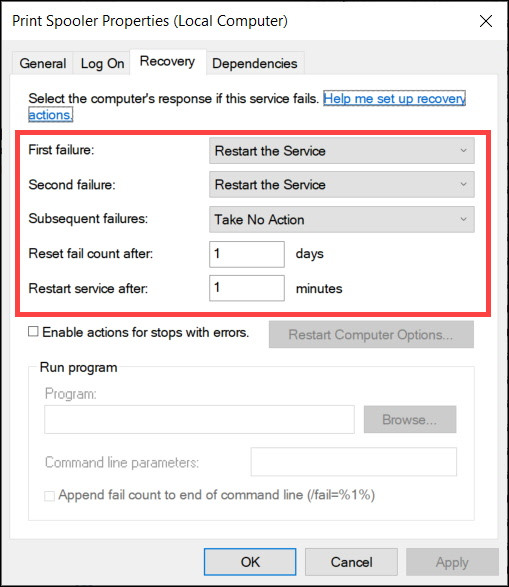
- Restart your PC and check if the Print Spooler service is up and running. If you have access to the printer, give it a reboot as well.
If the error persists, you can check out the next fix.
Fix 2: Run the troubleshooter
Windows provides a built-in troubleshooter to help you figure out what’s causing the issue. In some cases, it may provide a better insight if it’s a common error.
- On your keyboard, press Win+I (the Windows logo key and the I key) to open Windows Settings. Select Update & Security.
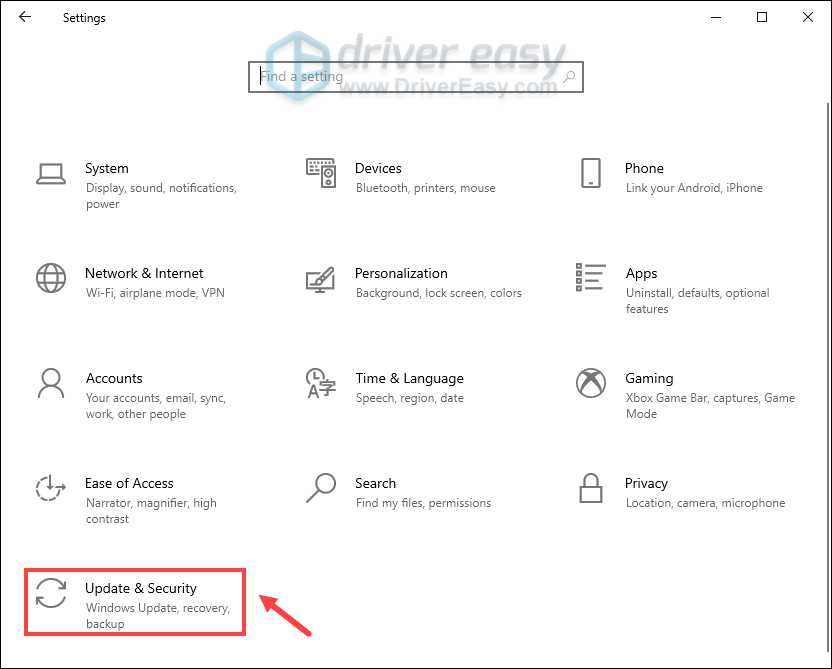
- On the left pane, select Troubleshoot. Click Additional troubleshooters.
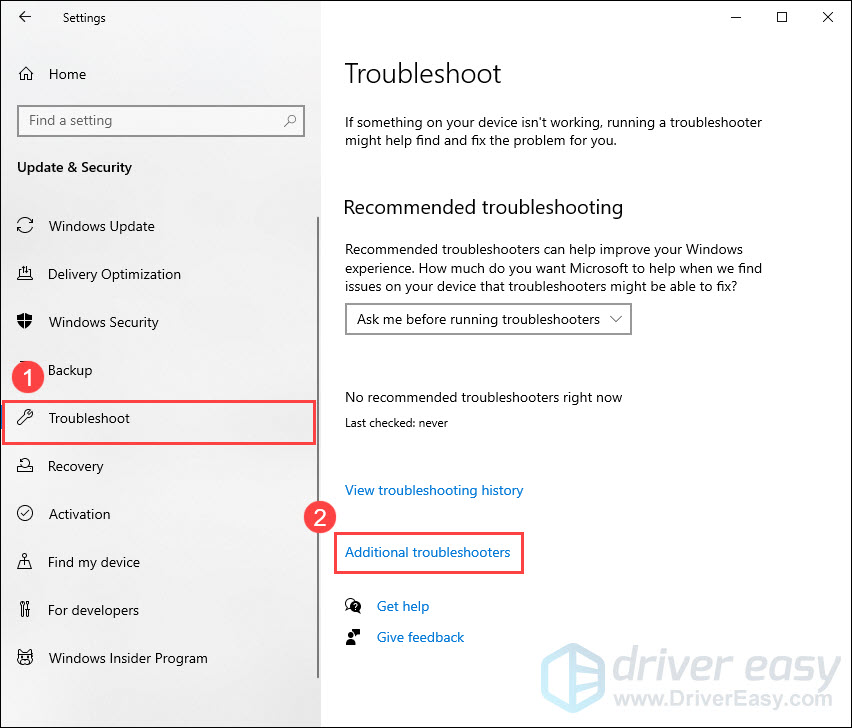
- Select Printer. Then follow the on-screen instructions to troubleshoot.
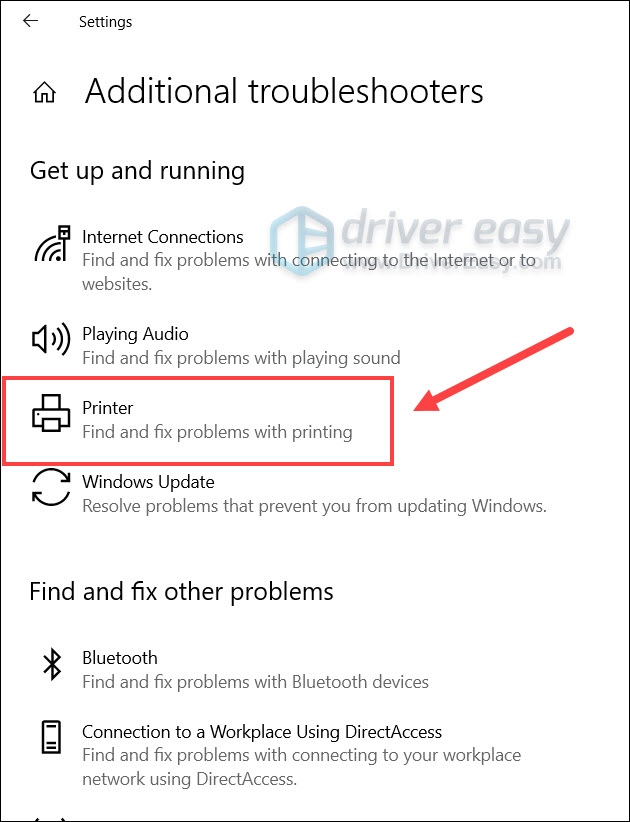
If the troubleshooter can’t help you fix the issue, take a look at the next method.
Fix 3: Reinstall your printer driver
Drivers are a set of computer software that let your PC communicate with the hardware. Some users reported that this could be a driver issue that can be fixed by reinstalling the printer driver. You can use to following steps to reinstall the printer driver correctly:
- On your keyboard, press Win+R (the Windows logo key and the R key) at the same time to invoke the Run box.
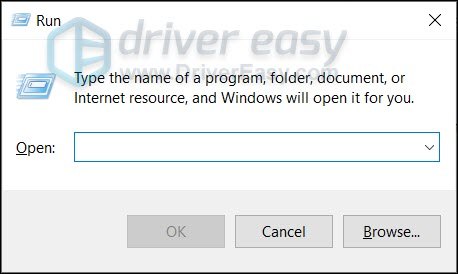
- Type or paste devmgmt.msc. Then click OK to open Device Manager.
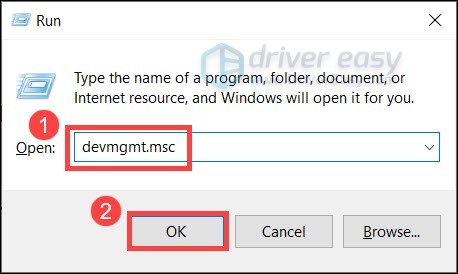
- Click to expand the Print queues category. Right-click your printer and select Uninstall device. (If you can’t find your printer in Device Manager, you can download Driver Easy to scan for missing drivers.)
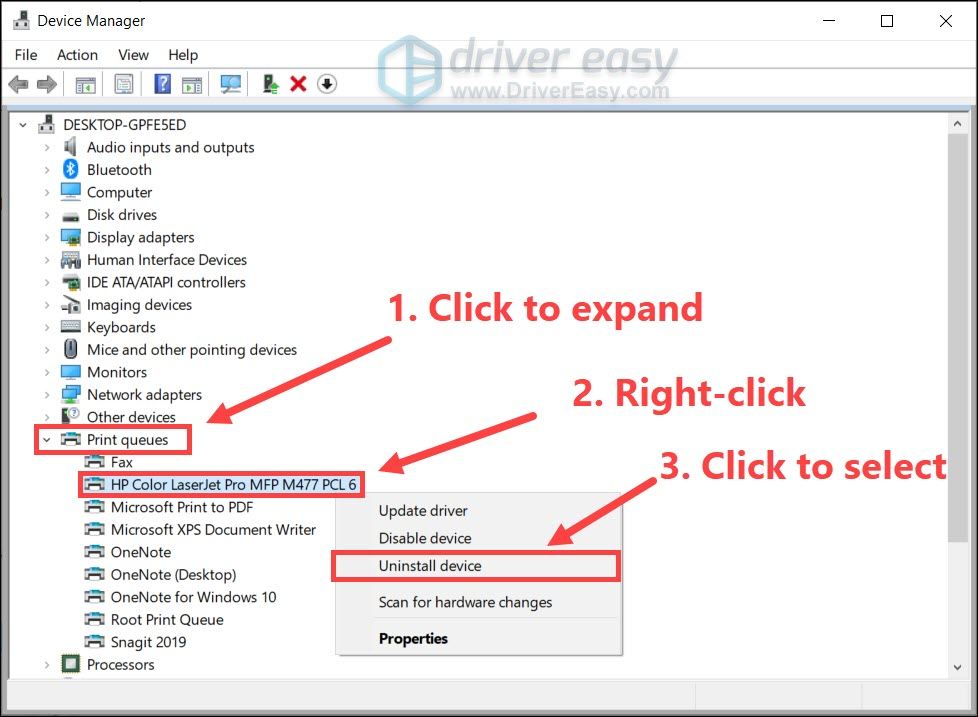
- Click Uninstall.
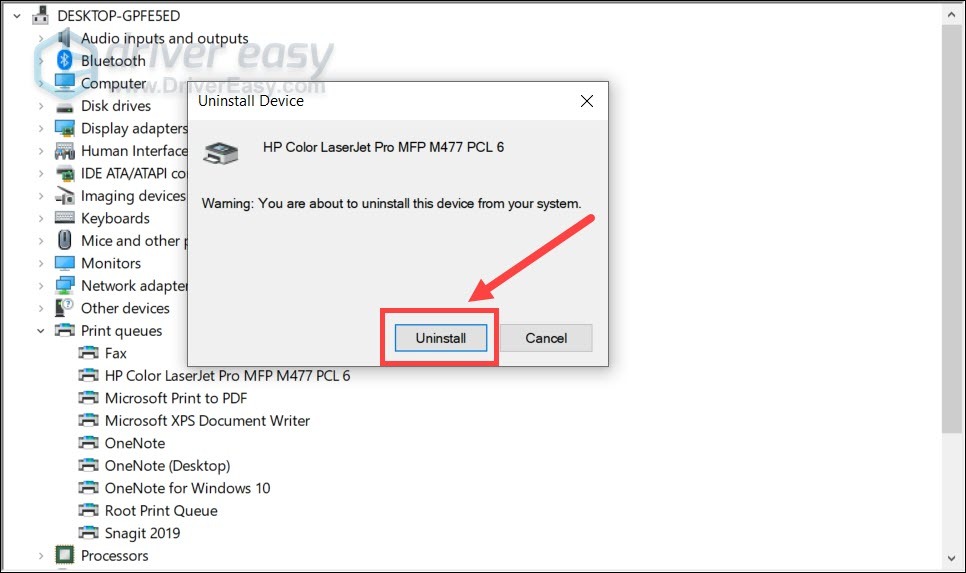
Usually Windows will install the missing printer driver automatically after a reboot. But if it doesn’t, you need to go to your printer manufacturer’s website and search for your printer model. Be sure to download the latest correct driver installer that’s compatible with your system. If you’re not familiar with computer drivers, you can use Driver Easy to repair and update drivers automatically.
- Download and install Driver Easy.
- Run Driver Easy and click the Scan Now button. Driver Easy will then scan your computer and detect any problem drivers.
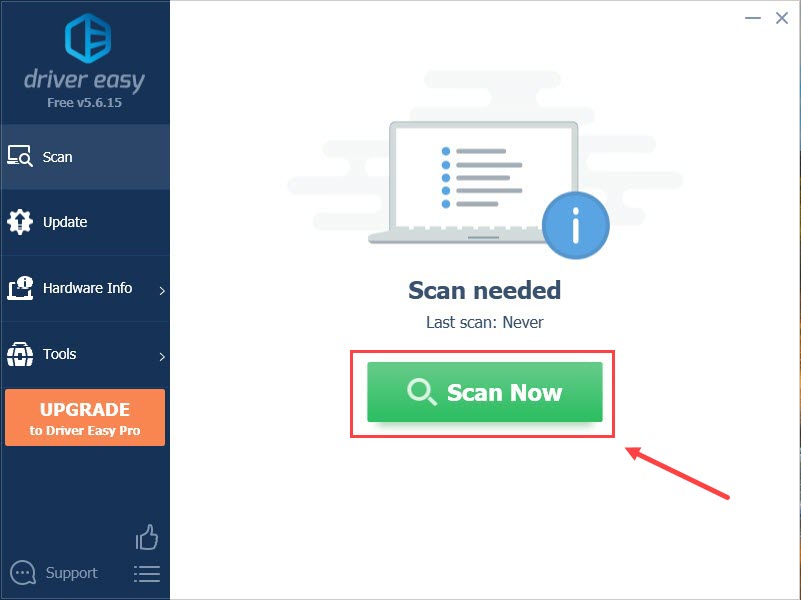
- Click Update All to automatically download and install the correct version of all the drivers that are missing or out of date on your system.
(This requires the Pro version – you’ll be prompted to upgrade when you click Update All. If you don’t want to pay for the Pro version, you can still download and install all the drivers you need with the free version; you just have to download them one at a time, and manually install them, the normal Windows way.)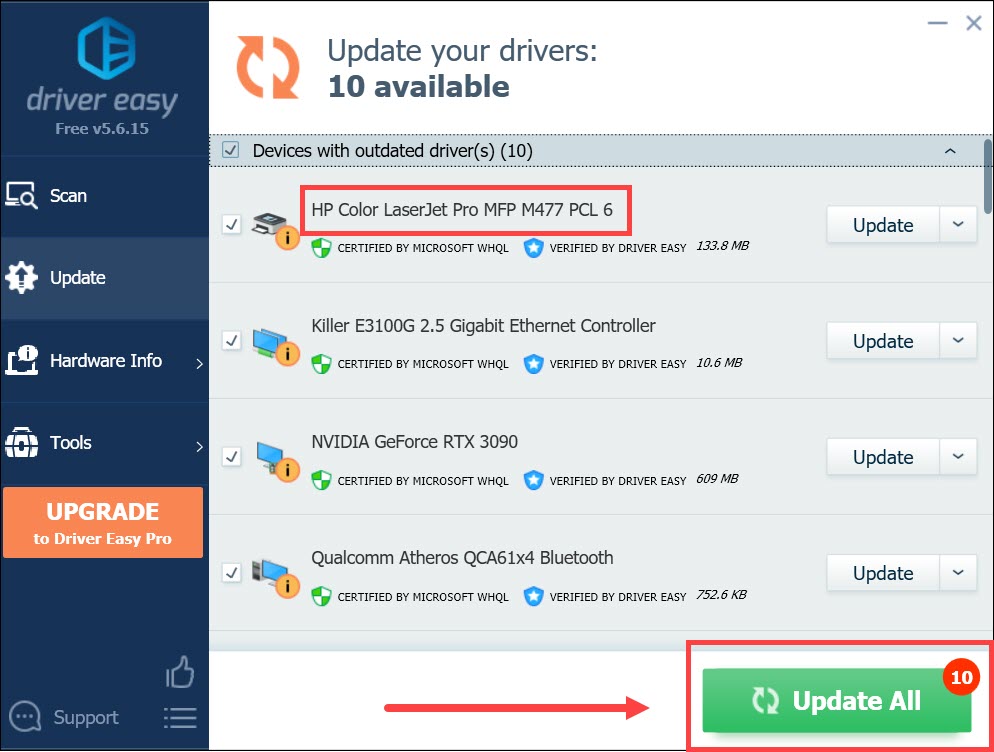
After updating all the drivers, restart your PC and check if the printer is working now.
If the latest driver doesn’t give you luck, simply move on to the next solution.
Fix 4: Install all Windows updates
Windows system updates should fix glitches and improve the overall stability. If you don’t remember when was the last time you checked for system updates, definitely do it now.
- On your keyboard, press Win+I (the Windows logo key and the i key) to open the Windows Settings app. Click Update & Security.
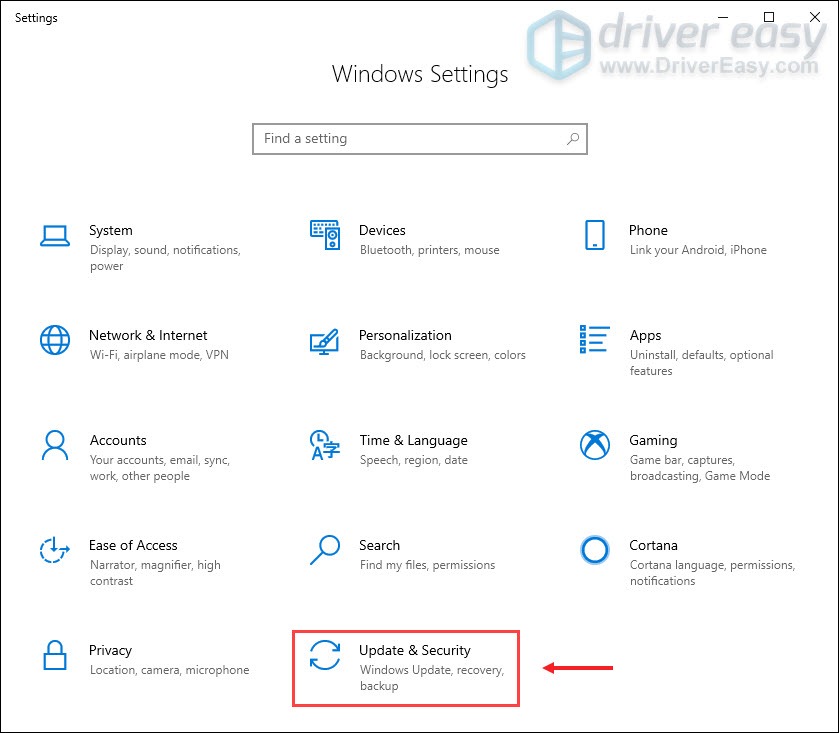
- Click Check for updates. Windows will then download and install the available patches. It might take some time (up to 30 mins).
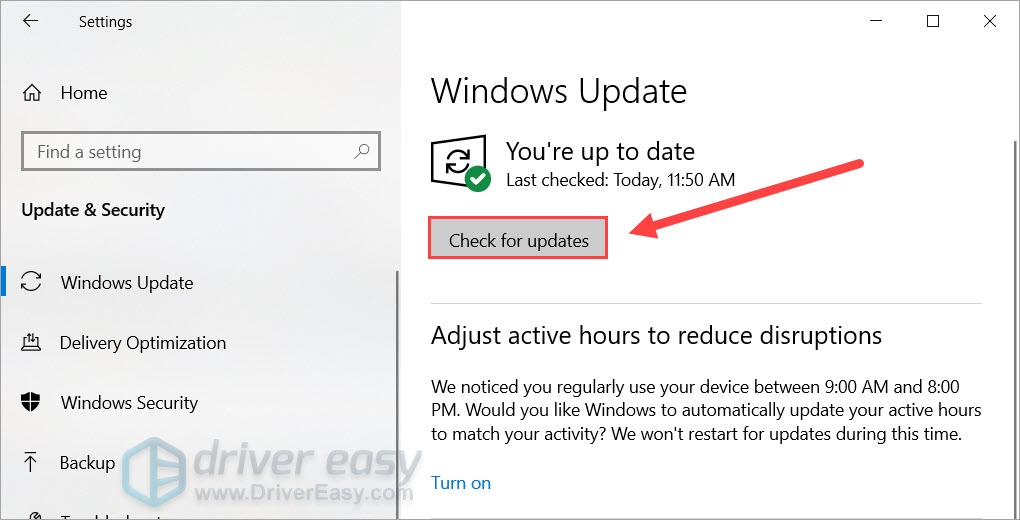
If this fix doesn’t give you luck, you can continue to the next one below.
Fix 5: Check for corrupted system files
In the worst case, you could be dealing with a system-level issue. This could mean that registry values are messed up, or it could also mean the whole system, or at least some important files are missing or corrupted. But before you try the nuclear method to reinstall Windows, you can first use a system repair tool to scan for system issues.
Fortect is a professional Windows repair tool that can scan your system’s overall status, diagnose your system configuration, identify faulty system files, and repair them automatically. It gives you entirely fresh system components with just one click, so you don’t have to reinstall Windows and all your programs.
- Download and install Fortect.
- Open Fortect. It will run a free scan of your PC and give you a detailed report of your PC status.
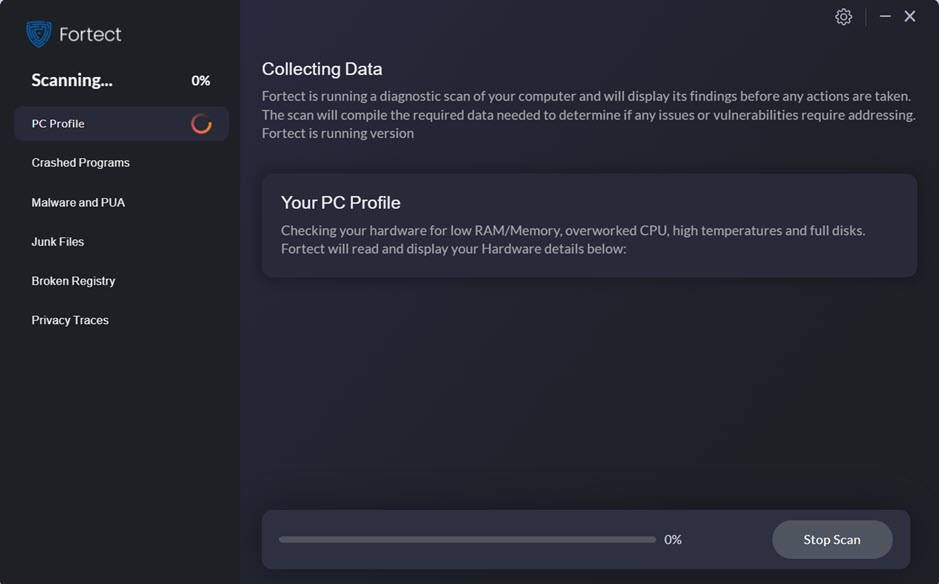
- Once finished, you’ll see a report showing all the issues. To fix all the issues automatically, click Start Repair (You’ll need to purchase the full version. It comes with a 60-day Money-Back Guarantee so you can refund anytime if Fortect doesn’t fix your problem).
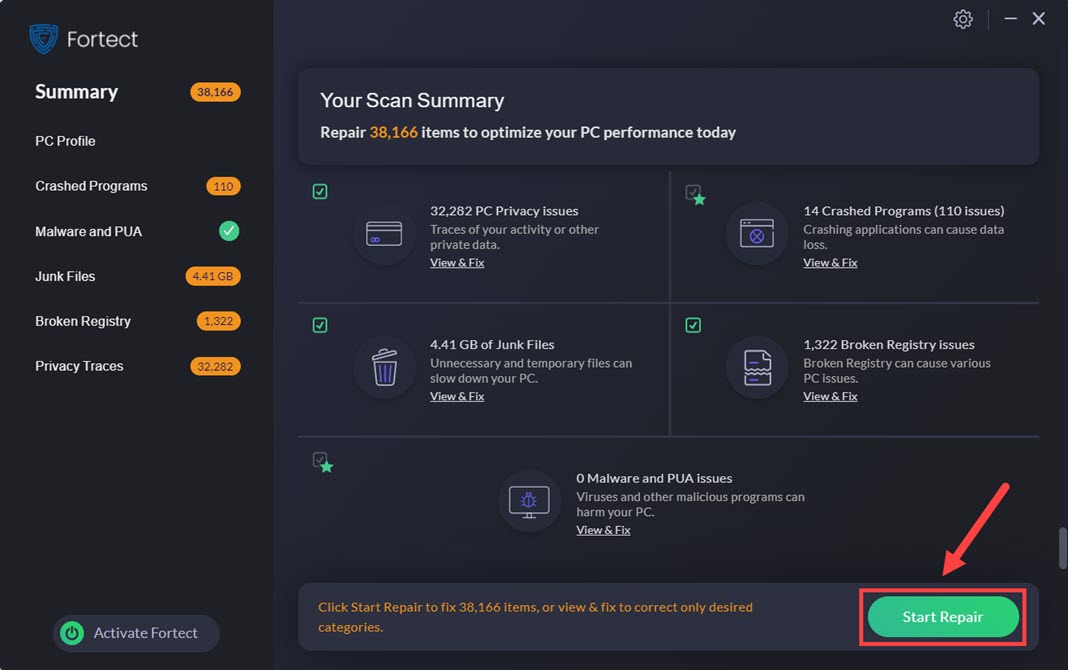
Hopefully this post helps you get your printer working again. If you have any questions or ideas, don’t hesitate to leave a comment down below.





